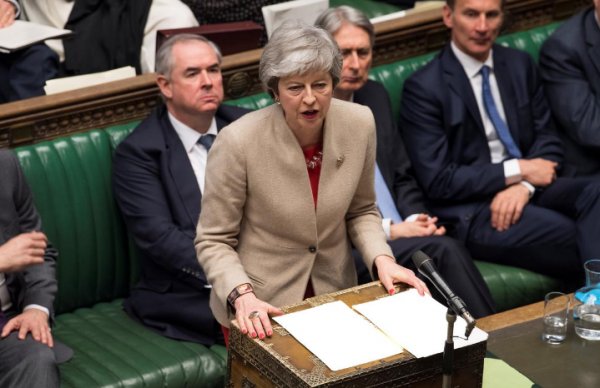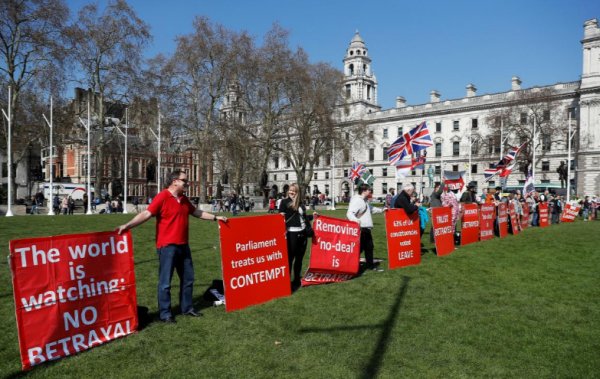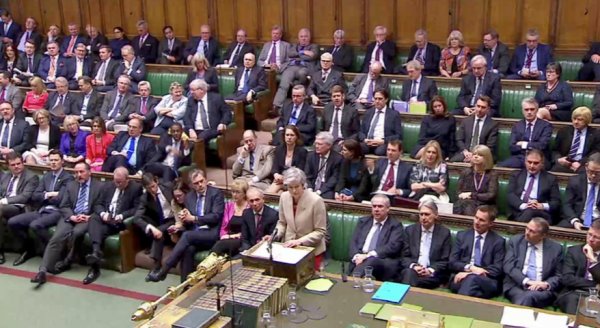
The decision to reject a stripped-down version of May’s divorce deal has left it totally unclear how, when or even whether Britain will leave the EU, and plunges the three-year Brexit crisis to a deeper level of uncertainty.
“I FEAR WE ARE REACHING THE LIMITS OF THIS PROCESS IN THIS”
“The implications of the House’s decision are grave,” May told parliament after the defeat. “I fear we are reaching the limits of this process in this House,” she added.
Within minutes of the vote which took place as thousands of Brexit supporters protested outside parliament European Council President Donald Tusk said EU leaders would meet on April 10 to discuss Britain’s departure from the bloc. A succession of European leaders said there was a very real chance Britain would now leave without a deal, a scenario that businesses fear would cause chaos for the world’s fifth-biggest economy.

White House national security adviser John Bolton told Reuters that President Donald Trump sympathized with May, and restated that the United States was keen to sign a trade deal with Britain once it was no longer in the EU.

May had framed the vote as the last opportunity to ensure Britain actually left the EU, making a passionate plea to lawmakers to put aside party differences and strongly-held beliefs. But in a special sitting of parliament, they voted 344-286 against the EU Withdrawal Agreement, agreed after two years of tortuous negotiations with the bloc. “The legal default now is that the United Kingdom is due to leave the European Union on April 12,” May said. She cautioned that any further delay to Brexit would probably be a long one beyond the current deadline, and would mean Britain holding elections to the European Parliament.

The British pound, which has been buoyed in recent weeks by hopes that the likelihood of an abrupt ‘no-deal’ Brexit is receding, fell half a percent after May lost, to as low as $1.2977, but then recovered some of its losses. [GBP/]

“If the deadline is extended longer, we will re-engage with sterling because that will be the start of the slow death of Brexit,” said Salman Ahmed, global investment strategist at Lombard Odier Investment Managers.













